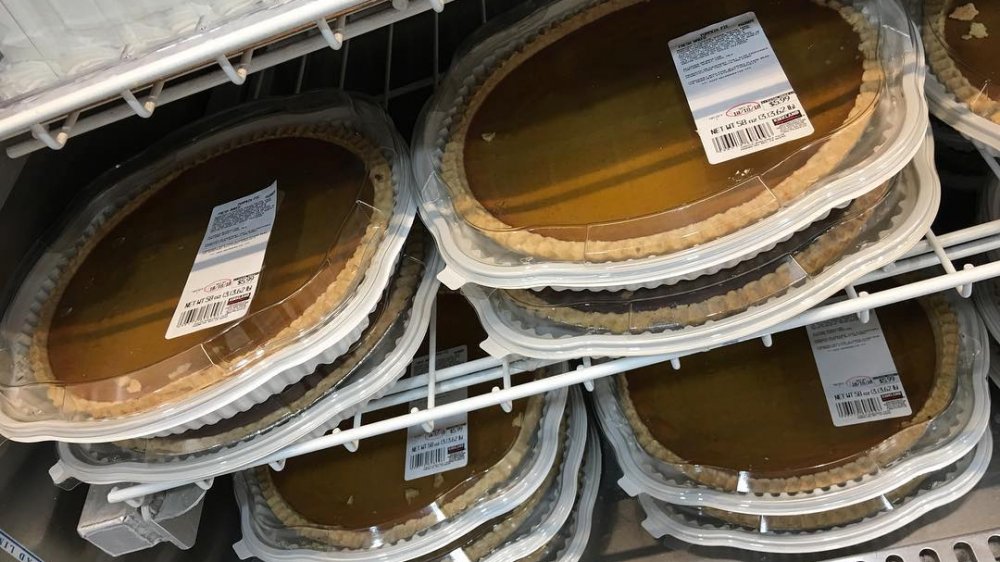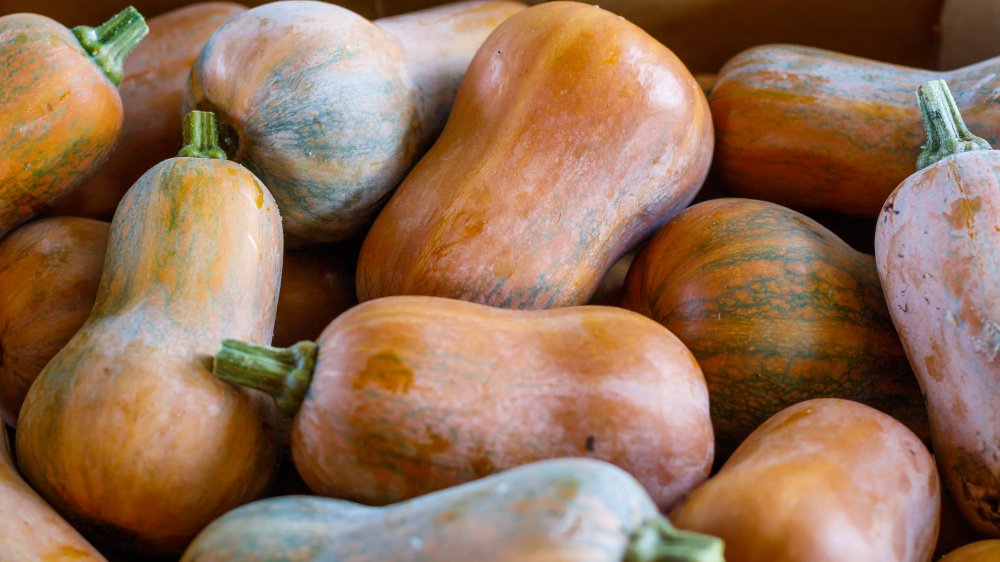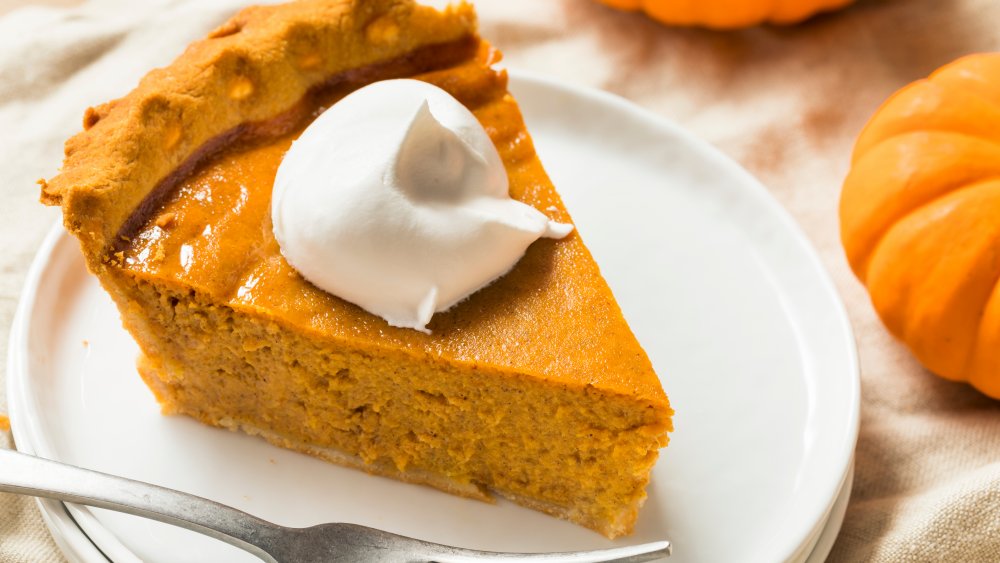Are Costco Pumpkin Pies Actually Made With Real Pumpkin?
If Grandma's best baking days are behind her, and you absolutely refuse to let the holidays pass without pumpkin pie, not to worry — Costco has you covered. The retail giant churns out millions of pumpkin pies each fall and have built up somewhat of a cult following. Not only do customers love Costco's pumpkin pies for their low price point, but they get a lot of pie for their dollar. A standard pie pan is around nine inches in diameter, but Costco's pumpkin pies measure in at 12 inches (via The Costco Connection).
With numbers like that, one has to wonder — just how much pumpkin is Costco really using in the 5 million-ish pies it makes every year?
Maybe we should call Costco's pumpkin pies 'squash pies' instead
Costco's pumpkin pies most certainly have that delicious nutmeg, cinnamon, and pumpkin flavor that one expects in a slice of pumpkin pie. The only thing is, the pumpkin in this pie isn't the same as that pumpkin you might also pick up from Costco to turn into a jack-o'-lantern. If we really want to be accurate here, Costco should probably start labeling its pumpkin pie as "Dickinson squash pie" because that's what it is. Unfortunately, that just doesn't roll off the tongue quite as nicely.
Before you dump your Costco pumpkin pie in the trash and demand to know why you've been misled by your favorite supplier of bulk groceries, it's important that we clear up two things. First off, your typical Halloween pumpkin — known as a field pumpkin — is also a squash, and so while it's still under that big squash umbrella, it's different than a Dickinson squash. The Dickinson variety of squash is actually more closely related to the butternut squash. It has more of an elongated shape, and it's a much paler orange color than a traditional Halloween-style pumpkin. Yes, you could carve it, but it's much better for eating (via The Atlantic).
So why don't we call the Dickinson squash a "Dickinson pumpkin"? That would probably put this whole pumpkin pie debacle to bed, right? Well, the botany world can be a rather fickle one, and folks are rather picky about what can be labeled a "pumpkin" and what is merely just a boring ol' squash. According to Heirloom Gardener, botanists only refer to a particular group of squash with the scientific name Cucurbita pepo as pumpkins. These squash tend to have that distinct round pumpkin shape and have different leaves and stems than other types of squash.
Even this is debatable among some in botany though, and as The Atlantic points out, Encyclopedia Britannica lists Cucurbita moschata aka Dickinson squash, as a type of pumpkin. Frankly, it's enough to make one throw down their plate of pumpkin(?) squash(?) pie in frustration and skip dessert altogether.
Are any pumpkin pies made with real pumpkin?
Okay, so the pumpkin/squash debate aside, let's get back to the real issue here: the amount of pumpkin in those Costco pumpkin pies you can't stop buying. Get ready for some even more earth-shattering news — unless your grandma was gutting field pumpkins herself and making them into a pie, she was probably baking up Dickinson squash pies at Thanksgiving, too. This is because Libby's Pumpkin Puree accounts for 85 percent of pumpkin puree sold, and they use Dickinson squash because it tastes better than field pumpkins (via Epicurious).
So why is it that Libby's is able to get away with listing "pumpkin" on its label, even though that's very debatable? Well, like most things in the food world, the Food and Drug Administration had to get involved. Their website reads:
"We have consistently advised canners that we would not initiate regulatory action solely because of their using the designation 'pumpkin' or 'canned pumpkin' on labels for articles prepared from golden-fleshed, sweet squash, or mixtures of such squash with field pumpkins. In the absence of any evidence that this designation misleads or deceives consumers we see no reason to change this policy."
Basically the FDA said they didn't want any part in the pumpkin/squash debacle and threw up their arms a long time ago.
Truth be told, field pumpkins just aren't that tasty. Colonial Americans only ate field pumpkins when they couldn't find any decent squash to eat. Field pumpkins were largely given to farm livestock to munch on. Oh, and prior to the 1800s, we didn't even refer to them as pumpkins. Everything was just a squash and one particular type of squash just tasted a lot crummier than the other. So perhaps we should all cut Costco (and every other pumpkin pie baker out there) some slack for the squash substitute.


